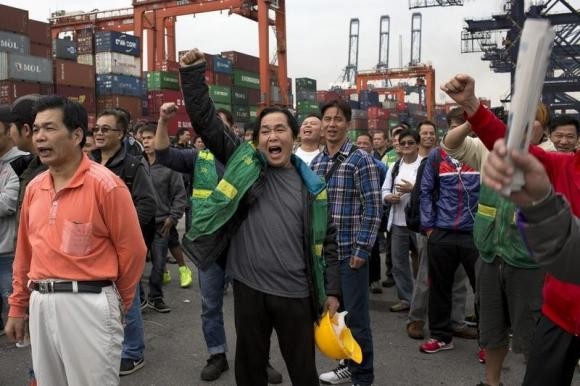Around 50 percent of Chinese employees are refusing to take paid leave, a legal right for workers stipulated by Chinese law, according to a nationwide survey administered by the Ministry of Human Resources and Social Security.
The People's Daily, the newspaper of the Communist Party of China, investigated the reason for this phenomenon by interviewing employees in different settings.
According to their findings, many of those who work in the public sector and state-owned enterprises feel that asking for paid leave might "leave bosses the bad impression of being lazy," hurting their chance at a promotion in the future.
In other industries, such as sales, employees tend to refuse to take their paid leave because only the basic salary is given when the leave is used, forgoing possible bonuses and commissions. Some also cited that the application for a paid leave is complicated.
According to China's Regulation on Paid Annual Leave for Employees, employees who have worked at least one year are entitled to paid leaves. Employees who have spent between one and 10 years in the workforce are entitled to five paid leaves a year, those between 10 and 20 years are entitled to 10 paid leaves, and those with more than 20 years in the workforce are entitled to 15 paid leaves a year.
Companies can also provide more leave days if they wish. However, they must specify it in writing and cannot backtrack once it has been promised to the employee.
According to Liu Junhai, a law professor in Renmin University of China, law implementation needs to encourage both employees and employers to make use of these leaves.
"In a society ruled by law, employees should be more aware of their legal rights while employers must guarantee the right of having annual paid leave in accordance with the law," said Liu in an interview with the People's Daily. "Now law enforcement departments in Beijing and other places have launched inspections on the implementation of the system of annual leaves with pay, which is a really good start."
Liu added that "ensuring paid leave may serve as an important method for employers to attract the best talent in the job market."
Paid leaves are also consistent with China's ongoing restructuring that promotes consumption and the development of the service industry, as it allows people to travel year-round instead of causing social and security problems by having a sudden surge of tourists during the holidays.
Employers have also been warned that failing to provide employees paid leave, as well as failing to facilitate these leaves, subjects them to substantial fines.




























